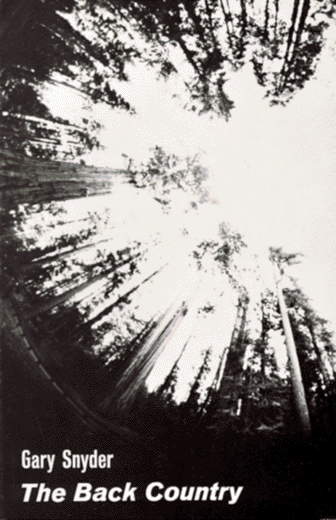
 On "Beneath My Hand and Eye the Distant Hills,
Your Body"
On "Beneath My Hand and Eye the Distant Hills,
Your Body"
Robert Frank and Henry Sayre
The organic connection between the line and the body--the life of the body in the poem---is probably nowhere more explicit than in Snyder's poem, "Beneath My Hand and Eye the Distant Hills, Your Body," from The Back Country. . . .
The appeal to organic form is a way of arguing for coherence. The poetic line here "follows" the lines of the body itself, as if dictated by them. The "I" is in quotation marks because the poet--and the poetic ego--has dissolved into the scene, just as the body has dissolved into the landscape. Whatever authority the poet might once have possessed--whatever "power"--has been assimilated into a larger "stream," and power itself has been redefined as a form of communication and intimacy. As Snyder puts it in his interview with Faas: "There is a direction which is very beautiful, and that's the direction of the organism being less and less locked into itself, less and less locked into its own body structure and its relatively inadequate sense organs, towards a state where the organism can actually go out from itself and share itself with others. And poetry in language is of the greatest order of that sharing of the inner self with the outer, with the non-self. In a way, that's the whole value of poetry, in a way it's on the highest level of human bonding" (139).
By Robert Frank and Henry Sayre. From the "Introduction" to The Line in Postmodern Poetry. Copyright 1988 by the Board of Trustees of the University of Illinois.
Charles Altieri
Particulars blend not only with one another but with the infinite energies beyond and "below". . . .
Even the words themselves (through the awkward device of the quotation marks) seek to burst out of their nominal functions to participate in those energies leaping forth to meet the poet's hand as it traces the line where love through desire generates form and gathers all the burning into a collective and expanding "'we.'"
By Charles Altieri. From Enlarging the Temple: New Directions in American Poetry during the 1960s. Bucknell University Press.
Return to Gary Snyder